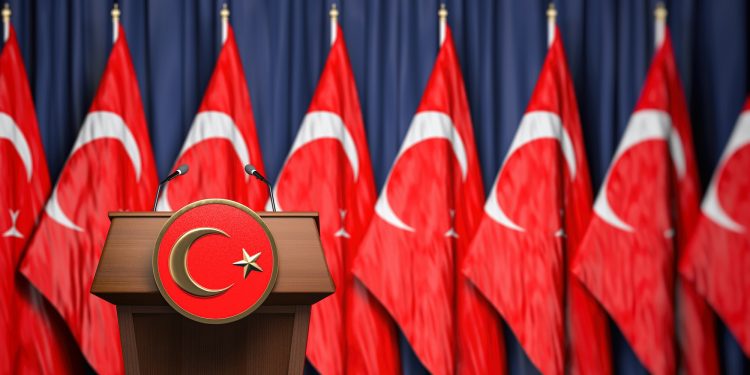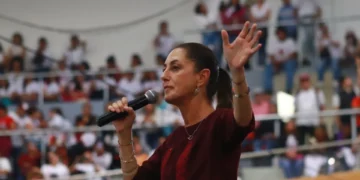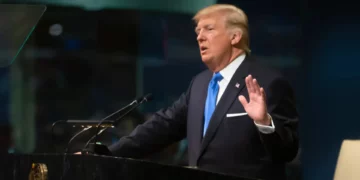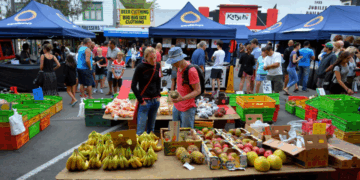The casting of the vote on May 14 can mark a dent in Erdogan’s political career. This will be one of his biggest political challenges to date.
Hakim Ekinci, a barber who owns a salon in the Besiktas district of Istanbul, said, “We used to be able to buy three to four bags of groceries for 150-200 lira ($7.7-$10). My wife and I could hardly carry them. Now we can barely fill two bags”.
Ekinci had supported Erdogan previously but decided not to cast his vote this time owing to his decreased purchasing power due to the leader’s faulty economic policies.
Erdogan’s strongest opponent seems to be his economic incompetency. His orthodox AK Party has maintained power for so long thanks to their low-income voter base, especially the Muslim Turks. However, his first-decade term resulted in strong economic growth.
The casting of the vote on May 14 can mark a dent in Erdogan’s political career. This will be one of his biggest political challenges to date. Apart from the usual political badmouthing from Kemal Kilicdaroglu, the opposition’s candidate, the Turkish citizens stand as a major challenge to him. They are struggling to fulfill the needs of even the basic essential items and are eyewitnesses to the rise and fall of their nation’s economy in just two decades.
Turkey has been facing a massive inflation spike for a couple of years. Since the last general election held in 2018, annual inflation has remained well above double-digit for almost five years.
Food prices saw a staggering increase of 54% year-on-year in April, with headline inflation cooling down from its high of 85.5% in October to 43.7%. These were the results of Erdogan’s unorthodox mindset combined with a plethora of interest rate cuts and a currency crisis in the winter of 2021.
Erdogan’s popularity has seen a substantial decline – astonishingly reflected in his voter bank – in the last couple of years. A decreasing purchasing power is what gives the actual realization to the masses about the economic performance of their elected leaders.
The year 2013 was a turning point for the Turkish economy. After enjoying the fruits of high growth and prosperity for over a decade, things started to shift in the opposite direction.
In 2013, global market liquidity dried up, leaving emerging markets like Turkey thirsty for funding. Since then, foreign investors started retreating from Turkish soil, leaving the forex, credit, and debt markets at the mercy of the state. In an emerging market economy, heavy governmental control is unhealthy.
Boom and Bust
Erdogan gained power in 2002 on the promise to recover Turkey from the long-standing recessions since the decline back in 1970. He was lucky enough to be right on time when the International Monetary Fund programme was eased. A diplomatic pivot to the West took place, bringing a decade of economic growth.
Inflation, poverty, and unemployment plummeted. Lira, the Turkish currency, began gaining a lot of attention. Cheap money flocked in from the West and ignited the growth of the Turkish construction boom.
Erdogan created a god-like stature of himself in his head. But in 2013, protests emerged in Istanbul’s Gezi Park, resulting in widespread clashes, arrests, and incarceration. This was happening inside the country alongside the cheap money flow from outside fried up, halting its cheap credit boom.
According to official bond holdings statistics and Turkey data Monitor, Lira’s value has declined more than 80 percent versus the dollar in the past five years.
Crackdown and Ghosting of the Protest
Ates Altinordu, assistant professor of sociology at Sabanci University, said that the protests were in response to the authoritarian regime of the AKP government. Erdogan went on a war against the opposition with all his governmental might.
The failed coup in 2016 by parts of the military and blamed on US-based cleric Fethullah Gulen. He added that this formalised Erdogan’s personalistic rule backed by a couple of loyal advisors of questionable backgrounds.
AKP was isolated by some prominent economic officials. Experts assume cracks then started forming in the policies, especially the orders to cut down rates despite the lira freefalling in 2018 and late 2021.
Bulent Gultekin said that if Erdogan regains power and continues a similar economic stance, then it is sure to crash at some time. Things can be postponed temporarily, but eventually, you need to pay the bill.

















